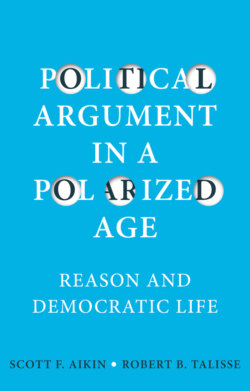Читать книгу Political Argument in a Polarized Age - Scott F. Aikin - Страница 8
2 Civility and Its Discontents
ОглавлениеDemocracy is hard to love. It’s noisy, contentious, frustrating, and inefficient. It involves meetings, caucuses, and committees. There’s a seemingly endless procession of polls, surveys, campaigns, and speeches. Sometimes democracy calls on us to canvass, demonstrate, and protest. More than this, democracy is also a suspicious moral proposal. It is the thesis that you may be required to live according to rules that you reject, simply because they are favored by others. Further, democracy is the claim that you may be rightfully forced to live according to rules that are supported only by others who are demonstrably ignorant, misinformed, deluded, corrupt, irrational, or worse. Democracy apportions equal political power to its citizens, regardless of their ability to wield it responsibly. Plato famously argued that as in any society there will be very few people who are wise, democracy is simply the rule of the foolish. What could be worse?
Nonetheless we tend to embrace democracy emphatically. But why? Consider Winston Churchill’s famous rationale: despite all of democracy’s flaws, every other form of government that has been tried is far worse. That rings true enough. But there’s less to this argument than meets the eye. We tend to see democracy as a supreme social good, rather than as merely the least bad in a collection of terrible alternatives. We are inclined to regard democracy as the best political system there could be. Thus we treat it as something to be cultivated, expanded, promoted, exported, and protected. Are these attitudes warranted? What’s so great about democracy?
